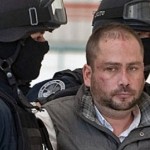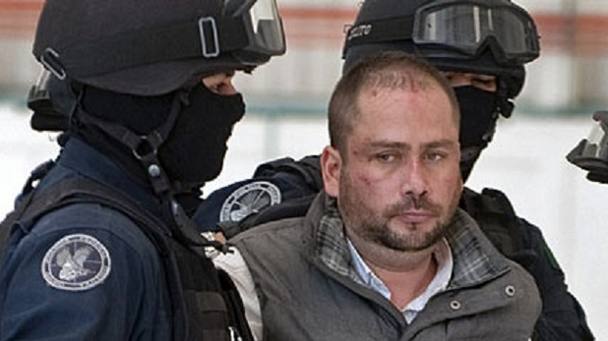
EL PASO, TEXAS – A shot-caller for a violent prison gang that did hits for the Juarez Drug Cartel was sentenced Thursday to life in prison for ordering the murders of a U.S. Consulate employee, her husband and the husband of another consulate worker, according to the U.S. Drug Enforcement Administration.
U.S. District Judge Kathleen Cardone also ordered Arturo Gallegos Castrellon, 35, to pay $998,840 in restitution and $785,500 in forfeiture, officials said.
Gallegos Castrellon, aka “Benny,” “Farmero,” “51,” “Guero,” “Pecas,” “Tury,” and “86,” of Chihuahua, Mexico, is a Barrio Azteca Lieutenant in charge of a team of assassins from 2008 to 2010, DEA officials said.
Authorities said Gallegos Castrellon’s Barrio Azteca assassins were responsible for killing up to 800 people between January and August 2010, reaching a total of nearly 1,600 individuals in a multi-year period, officials said.
Evidence at trial proved that Gallegos Castrellon ordered the March 13, 2010, triple homicide in Juarez, Chihuahua, Mexico, of U.S. Consulate employee Leslie Enriquez; her husband Arthur Redelfs and Jorge Salcido Ceniceros, the husband of another U.S. Consulate employee.
“The DEA is committed to ensuring cold-blooded criminals, like Arturo Gallegos Castrellon, who murder innocent victims, traffic huge amounts of drugs worldwide, and incite violence are taken off the street and remain behind bars,” said DEA Administrator Michele M. Leonhart. “Castrellon’s conviction and life sentence is a clear sign that the DEA, along with our law enforcement partners, will not tolerate those who attack Americans abroad and is committed to upholding the rule of law, protecting our citizens, and bringing to justice the world’s worst criminals.”
U.S. Attorney Robert Pitman said. “This prosecution has called to account Arturo Gallegos Castrellon for the senseless murders he orchestrated in Ciudad Juarez and elsewhere and demonstrates our commitment to ending the murder and mayhem he and the cartels have fomented.”
The El Paso Times reported that Gallegos’s lawyer, Randolph Ortega, told the court that he had filed a notice for appeal. He said Gallegos failed to receive his rights to due process from the time of his presentation by the media in Mexico City in 2010, through his extradition in 2012 and to his trial and sentencing, the Times reported.
“Everything imputed guilt to him,” Ortega said. “As he sat there (during the trial), he was ‘guilty.’ He did not have any means to refute the PSR (pre-sentencing report), or bring factual witnesses (for his defense), now or during the trial.”
Gallegos Castrellon was extradited from Mexico on June, 28, 2012.
A federal jury found Gallegos Castrellon guilty of six counts of murder and conspiracies to commit racketeering, narcotics trafficking, narcotics importation, murder in a foreign country and money laundering.
Evidence at his trial proved that Gallegos Castrellon was a leader in the Barrio Azteca, a violent street and prison gang that began in the late 1980s and expanded its criminal activities into Mexico, officials stated.
The BA formed an alliance with “La Linea,” part of the Juarez Drug Cartel, which is also known as the Vincente Carrillo Fuentes Drug Cartel.
The purpose of the Barrio Azteca-La Linea alliance was to battle the Sinaloa Cartel and its allies for control of the drug trafficking route through Juarez, Chihuahua, Mexico. The drug route through Juarez, known as the Juarez Plaza, is important to drug trafficking organizations because it is a principal illicit drug trafficking route into the United States via El Paso, according to the DEA.
Trial evidence also proved that Gallegos Castrellon ordered the March 13, 2010, triple homicide in Juarez, Chihuahua, Mexico, of U.S. Consulate employee Leslie Enriquez, her husband Arthur Redelfs, and Jorge Salcido Ceniceros, the husband of another U.S. Consulate employee.
Officials said that a total of 35 defendants were charged in the third superseding indictment and are alleged to have committed various criminal acts, including the 2010 Juarez Consulate murders, as well as racketeering, narcotics distribution and importation, retaliation against persons providing information to U.S. law enforcement, extortion, money laundering, murder and obstruction of justice.
Of the 35 defendants charged, 26 have been convicted, one committed suicide before the conclusion of his trial, and two remain fugitives, including Eduardo Ravelo, an FBI Top Ten Most Wanted Fugitive, authorities stated.

